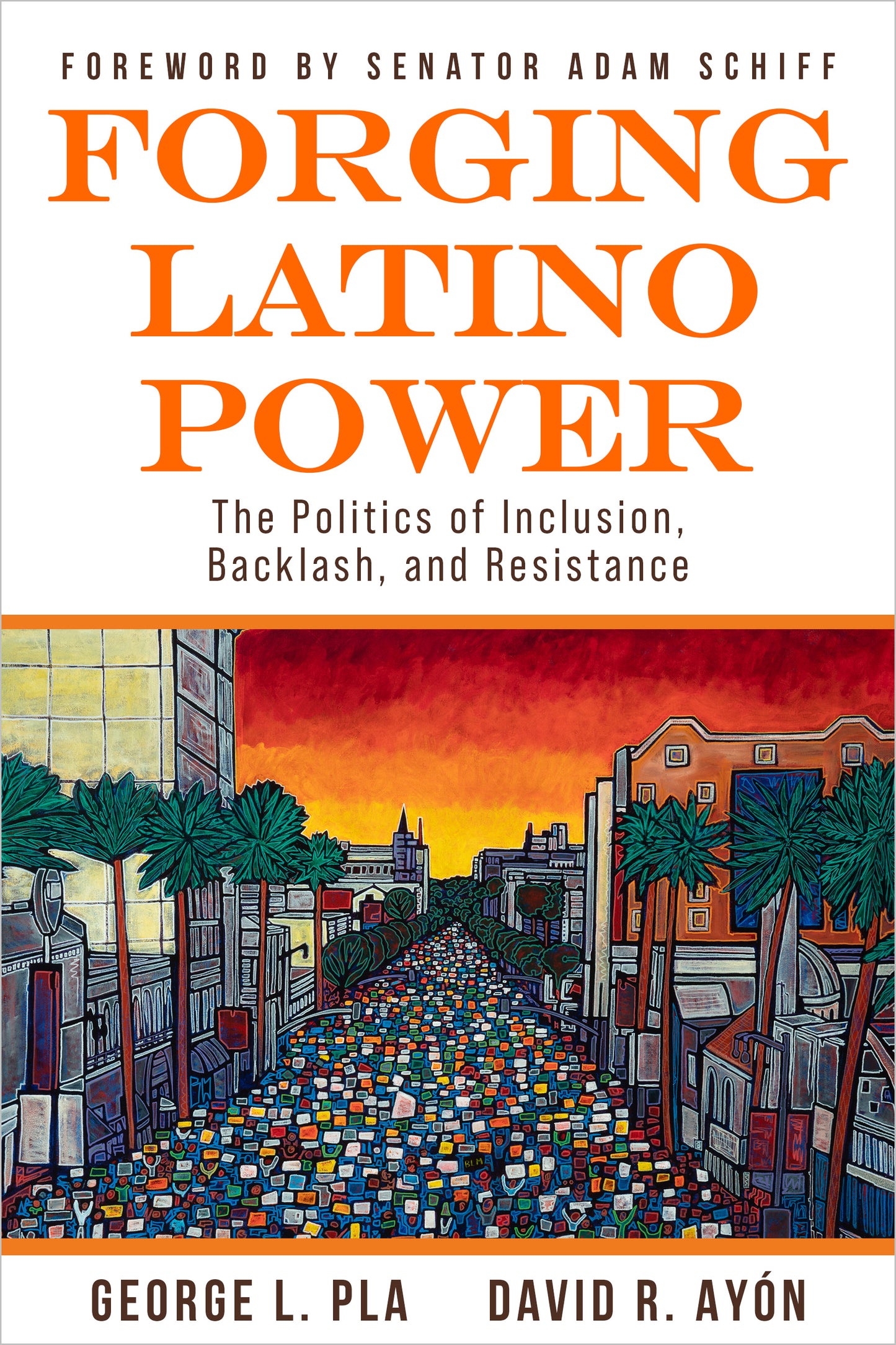Forging Latino Power
Forging Latino Power
Couldn't load pickup availability
View full details
"Ayón and Pla illuminate the strategies and courage with which Latinos have insisted on justice, resisted marginalization, and persisted in shaping our nation's future." — G. Cristina Mora, Chancellor's Professor of Sociology, Co-Director, UC Berkeley Institute of Governmental Studies
At a defining moment for American democracy, Forging Latino Power traces the fight for Latino political empowerment, from the earliest efforts to improve working and living conditions in California to the streets of LA today.
Through the stories of leaders and legends like Dolores Huerta, Alex Padilla, Antonia Hernández, Jorge Ramos, Eva Longoria, Pete Aguilar, Xavier Becerra, Monica Lozano, Henry Cisneros, Eric Garcetti, and more, this book reveals how Latina/o trailblazers overcame their community's historic exclusion to reach some of the highest positions of power.
Each hard-won victory for representation triggered backlash, but they forged ahead. Their ability to defy repression, defend the most vulnerable, and drive policy change models how constructive resistance can result in greater inclusion and progress.
David R. Ayón, coauthor of Power Shift: How Latinos in California Transformed Politics in America, has taught politics at seven universities and contributed to over twenty books and other publications.
George L. Pla, Founder and CEO of Cordoba Corporation, has been in the forefront of Latino politics in California since his early days in grassroots activism.
Review text
“Forging Latino Power shows how Latinas and Latinos developed the clout to make government address their needs. As we organize to overcome current and future backlashes, their stories of struggle and achievement give me confidence we will succeed.”
—Senator Adam Schiff, author of Midnight in Washington: How We Almost Lost Our Democracy and Still Could
“At a time when the political allegiance of Latinos is being contested and questioned—with a notable drift to the right now being stalled by the mass deportations that the Latino vote helped make happen—along comes this remarkable and comprehensive volume.”
—Manuel Pastor, Distinguished Professor of Sociology and American Studies & Ethnicity, University of Southern California
“Essential reading for anyone seeking to understand the heart of US history and the promise of its future.”
—G. Cristina Mora, Chancellor's Professor of Sociology, Co-Director, UC Berkeley Institute of Governmental Studies
“The political landscape has been forever changed for the better because of the inclusion of Latino voices.”
—Karen Bass, Mayor of Los Angeles
“Non-Latino candidates and officeholders take a snapshot of Latino concerns every two or four years to explain the political world of Latinos; Ayón and Pla identify the long-term cycles of political organization in Latino communities to show patterns that transcend a single election. Central to their story is a keen understanding of the role of community-based leadership.”
—Louis DeSipio, Professor of Chicano/Latino Studies and Political Science, University of California Irvine
“Ayón and Pla have established themselves as the preeminent scholars of Latina/o American political development. To understand the ebbs and flows of progressive Latina/o politics, read this book!”
—Chris Zepeda-Millán, Associate Professor of Public Policy and Chicana/o & Central American Studies, UCLA
“An important new book, meticulously tracing the rise of Latino political empowerment from its complex rural and urban lineages in California to its florescence in the nation’s capital.”
—Ramón A. Gutiérrez, MacArthur Fellow and Professor Emeritus of US History, University of Chicago

